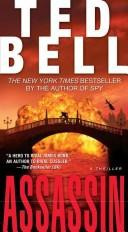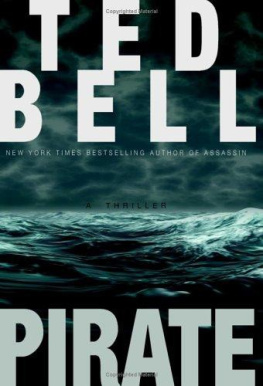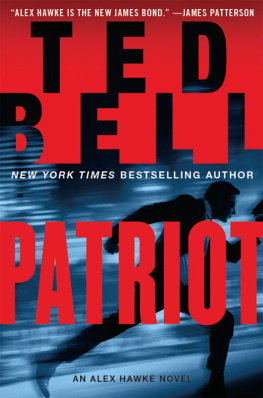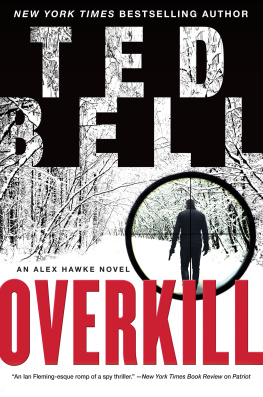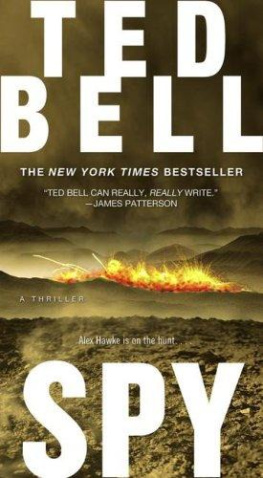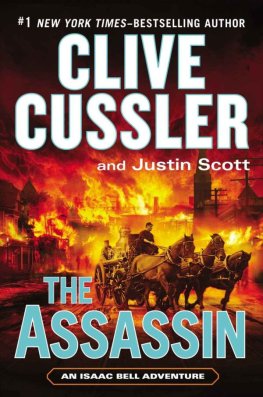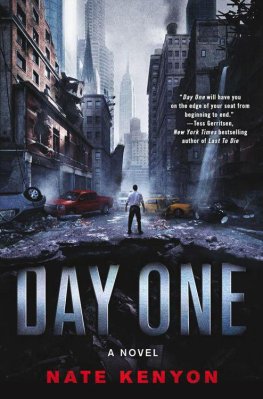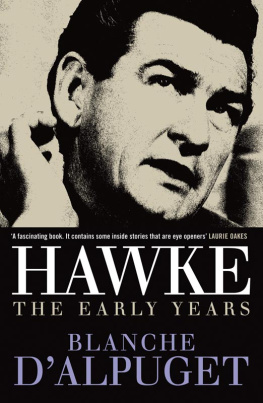Also by Ted Bell
Hawke
Nick of Time

ATRIA BOOKS
1230 Avenue of the Americas
New York, NY 10020
This book is a work of fiction. Names, characters, places and incidents are products of the authors imagination or are used fictitiously. Any resemblance to actual events or locales or persons living or dead is entirely coincidental.
Copyright 2004 by Theodore A. Bell
All rights reserved, including the right to reproduce this book or portions thereof in any form whatsoever.
For information address Atria Books, 1230 Avenue of the Americas, New York, NY 10020
Library of Congress Cataloging-in-Publication Data
Bell, Ted.
Assassin : a novel / Ted Bell.1st Atria Books hardcover ed.
p. cm.
ISBN 0-7434-9402-4
1. TerrorismPreventionFiction. 2. RevengeFiction. I. Title.
PS3602.E6455A87 2004
813.6dc22 2004046106
First Atria Books hardcover edition July 2004
ATRIA BOOKS is a trademark of Simon & Schuster, Inc.
Visit us on the World Wide Web:
This book is respectfully dedicated to Captain Theodore A. Bell, Jr., U.S. Army Air Corps, Ret. In June 1942, Captain Bells 77th Bomber Squadron, 11th Air Force, began combat operations against invading Japanese carriers and battle groups in southern Alaska. In October 1943, his squadron participated in a raid on the main Japanese Navy base at Paramisha, Japan, destroying that base as an effective offensive unit. For his actions, Captain Bell was awarded the Distinguished Flying Cross.
He is my father.
He was my first hero.
Acknowledgments
I would like to offer my thanks to several people who have given so generously of their time and talents in support of this book. First, at Atria, the talented Paolo Pepe and Sarah Branham, of the unflagging cheer and patience. I thank my dear friend Wiley Reynolds for his meticulously informed observations on all things aeronautical. Captain George C. Fogwell, who circles the globe in the big 777s for Delta Airlines, and who read me loud and clear all the way across the Pacific. Mary Anne Page for her keen eye and perfect pitch. And the Hon. Robert Lloyd George for valiantly striving to keep my Anglo-American sensitivities somewhat attuned.
Also at Atria, my deepest thanks to Judith Curr, and at Pocket, Louise Burke. And, of course, to my editor, Emily Bestler, for her unstinting aid and comfort, sage advice, and encouragement. I couldnt ask for more.
I owe a huge debt of gratitude to my agent of many years, Peter Lampack. He is astute, a friend, and a gentleman.
Lastly, but most especially, I wish to thank my wife, Page Lee Hufty. Her contributions to this work are too numerous to mention; but this book is immeasurably better because of her timely flashes of creative inspiration.
Cry Havoc!and let slip the dogs of war.
J ULIUS C AESAR , A CT III, S CENE I
Prologue
Venice
T HE LATE AFTERNOON SUN SLANTED THROUGH THE TALL windows opening onto the Grand Canal. There were silken peacocks in the velvet draperies and they stirred in the salty Adriatic breeze. These warm evening zephyrs sent sunstruck motes of dust swirling indolently upward toward the vaulted and gilded ceiling.
Naked, lying atop the brocade coverlet of the grand canopied bed, the Honorable Simon Clarkson Stanfield rolled over and impatiently stubbed out his cigarette in the heavy crystal ashtray beside his bed. He lifted his keen grey eyes to the windows and gazed intently at the scene beyond them. The timeless and ceaseless navigation of Venetians had never lost its fascination for him.
At this moment, however, the vaporetti, water taxis, and produce-laden gondolas plying their way past the Gritti Palace were not the focus of his attention. Nor were the fairy-tale Byzantine and Baroque palazzi lining the opposite side of the canal, shimmering in the waning golden light. His attention was directed toward a sleek mahogany motorboat that was just now working its way through the traffic. The beautiful Riva seemed to be heading for the Grittis floating dock.
Finally.
He swung his long legs over the side of the bed and stood, sucking in the beginnings of an unfortunate gut reflected from far too many angles in the mirrored panels between each of the windows. Hed recently turned fifty, but he worked hard at staying in shape. Too much good wine and pasta, he thought patting his belly. How the hell did these local Romeos stay so thin? He was sliding across the polished parquet floors in his leather slippers, headed for the large open balcony when the telephone jangled.
Yes?
Signore, prego, the concierge said, you asked to be called, subito, the moment la Signorina arrived from the aeroporto. The Marco Polo taxi is coming. Almost to the dock now.
Grazie mille, Luciano, Stanfield said. S, I can see her. Send her up, per favore.
Va bene, Signore Stanfield.
Luciano Pirandello, the Grittis ancient majordomo, was an old and trusted friend, long accustomed to the Americans habits and eccentricities. Signore never used the hotels entrance, for instance. He always came and went through the kitchen, and he always took the service elevator to the same second floor suite. He took most of his meals in his rooms and, save a few late night forays to that American mecca known as Harrys Bar, thats where he stayed.
Now that he was such a well-known personage in Italy, il Signores visits to Venice had become shorter and less frequent. But Lucianos palm had been graced by even more generous contributions. After all, the great mans privacy and discretion had to be ensured. Not to mention many visiting friends who had, over the years, included a great number of the worlds most beautiful women, some of them royalty, some of them film stars, many of them inconveniently married to other men.
Shouldering into a long robe of navy silk, Stanfield moved out under the awning of the balcony to watch Francesca disembark. Luciano stood in his starched white jacket at the end of the dock, bowing and scraping, extending his hand to la Signorina as she managed to step deftly ashore without incident despite the choppy water and the bobbing Riva. Sprezzatura, Francesca called it. The art of making the difficult look easy. She always behaved as if she were being watched, and of course she always was.
Not only Stanfield watched from the shadows of his balcony, but also everyone sipping aperitifs or aqua minerale and munching antipasti on the Grittis floating terrace stared at the famous face and figure of the extravagantly beautiful blonde film star in the yellow linen suit.
Luciano, smiling, offered to take her single bag, a large fire-enginered Herms pouch that hung from her shoulder by a strap, but she refused, pushing his hand away abruptly and snapping at him. Odd, Stanfield thought. Hed never seen Francesca snap at anyone, especially Luciano, the soul of beneficent charm. Foul humor? She was six hours late. Hell, six hours of sitting on your backside at Rome Fiumicino Airport would be enough to put anyone in a bad mood.
Stanfield watched the top of Francescas blond head disappear beneath his balcony balustrade and took a deep breath, inhaling both the scent of damp marble within the room and the smell of springtime marsh that came in off the canal. Soon, his room would be filled with the scent of Chanel Number 19. He had known she would not dare look up and catch his eye and he had not been disappointed. He smiled. He was still smiling, thinking of Francescas backside, when there came a soft knocking at the heavy wooden door.

